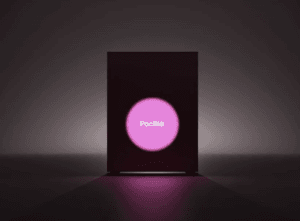PacBio Reveals SPRQ Chemistry for Long-Read Sequencing: Bringing Full Genome Sequencing Under $500

PacBio has introduced SPRQ chemistry for its long-read sequencing systems Revio™. With this PacBio is aiming to enhance the performance and lower DNA input requirement for sequencing, along with yield enhancements to increase sensitivity in methylation analysis.
SPRQ puts PacBio on the pathway to reduce long-read human genome sequencing to under $500. This would make it easier for more researchers to access PacBio’s HiFi sequencing technology in population genomics and rare disease research, among other applications, and therefore a landmark step toward democratising genomic research.
Drive Efficiency: Fewer DNA Input to Many Output
With the SPRQ chemistry there is a significant reduction of DNA input requirements, from 2,000 ng(nano garms) to just 500 ng. This fourfold reduction now opens the door to sample types that previously contained too much input DNA for HiFi sequencing technology like tissues, saliva and tumor samples. This chemistry also provides a 33% increase in sequencing yield per SMRT Cell. Together, these place each Revio device in a position to sequence up to 2,500 human genomes per year-a scale at which the cost of sequencing drops well below $500 per genome.

Multi Omics Meets Accessibility: New high-throughput methylation analysis
Beyond improvements in costs and performance, SPRQ chemistry enables significant improvements in the methylation calling. With this chemistry comes a software update that further improves 5mC methylation quantification and adds 6mA as a second marker for open chromatin. In doing so, it positions HiFi as a competitive alternative to traditional methylation arrays and offers a richer multi omic view. With this upgrade now integration of DNA, methylation, and chromatin data in a single sequencing run which was achieved earlier using tools like Fiber-seq is being done without an overly complicated computational workflow because they can now analyze the accessibility of chromatin in a single run.
Expanding the Scope of Genomic Research
SPRQ chemistry now impacts the scientific community as such increases in accessibility. Niall Lennon, Chair and Chief Scientific Officer at Broad Clinical Labs, noted that the chemistry boosted sequencing success rates significantly, largely from samples that had been previously unworkable. It will not only bring down the cost but will also help elongate the scope of long-read sequencing toward a broader range of research activities, thus aiding better discovery in areas of pangenomics, investigations into somatic variation, and rare disease studies.
Industry Views and Next Steps
According to PacBio’s CEO, Christian Henry: “It was revolutionary advancement and it was, truthfully, a turning point for our company. Because with SPRQ chemistry, applying it to all current Revio systems is simply done through an easy software update ensuring users get rapid benefits.” Expected improvements in the productivity of the chemistry combined with its multi omics potential are expected to stimulate more uptake of Revio systems and usher in a new age of genomic research.
Combining affordable versatility and advanced multi omics capabilities, this innovation aims to position PacBio at the leadership heights of the long-read sequencing market. A cost reduction to less than $500 for human genome sequencing is more than just a landmark; it is a gateway to expanded accessibility in genomic research, to high-end science facilities worldwide. This move is exactly in line with growing demands for high-quality, high-resolution genomic insights. It places a new benchmark for the industry.
Know more about this article here.



